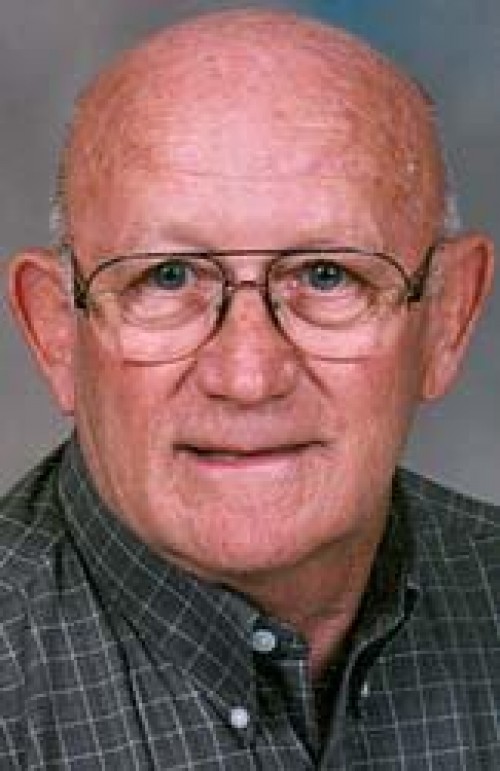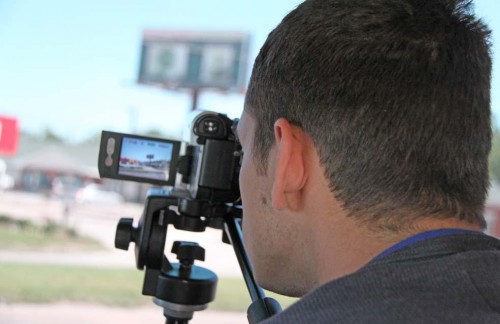April 14
April 14, 2009
Charles "Bob" Craver
April 16, 2009The first rule one must learn to be a private investigator is that the job isn’t as it appears in movies and television shows.
That means no stakeouts in a car parked directly across the street from the subject’s house. Tailing a target means being much further than two car lengths behind. Playing a character to get information is rare. While travel is part of the job, don’t expect to go to any exotic locales.
“Me and my husband (Paul) crack up every time we see that stuff,” said Maria Dugas, who co-owns Dugas Legal Investigations with her husband. The operation has offices in Houma and Schriever.
There is one part of the job that fictional PIs get right. When the client suspects their spouse is cheating, the vast majority of the time they are correct.
“In all of our years of doing domestic work, the client is never happy,” Dugas said. “They’re not happy if you catch them, and if you don’t catch them, they think you weren’t doing your job and you just didn’t get them.”
The Dugases have been private investigators since 1997. They do a full range of investigations from insurance claims, background checks and process serving.
They employ one other full-time and one part-time investigator and an office manager. Their offices in Houma and Schriever are perfect for an investigation agency – nondescript locations with no signage.
Gov. Bobby Jindal recently appointed Montegut native Maria Dugas, 39, to the Louisiana State Board of Private Investigators Examiners, which regulates the industry. As a member-at-large, Dugas is the continuing education and training chairperson.
Paul Dugas, 41, was elected president of the Louisiana Private Investigators Association in October. LPIA is a professional organization that grants all private investigation licenses.
The Dugases have had to tackle one controversy right off the block with their respective organizations. In the last legislative session, LSBPIE added what is called a journeyman’s license, which allows investigators to work at multiple agencies.
In Louisiana, all investigators have to be licensed either as an individual or an agency.
Investigators have to take the 40-hour course, which is offered by multiple universities, and pass a state exam. Delgado Community College in New Orleans is the closest to the Tri-parish area to offer the course.
“The course teaches you everything you need to pass the test, but nothing practical about what you need to know to be a good investigator,” Maria Dugas said.
She noted that when the agency hires a new investigator, the employee is teamed with Paul for a month before handling a case alone.
Mobile surveillance is the hardest and most dangerous aspect of the job because it is the most difficult to train for, according to Dugas.
“Once a subject is mobile, you have to stay with them and shoot video of them – not at the same time though,” she said. “We use a tripod for everything. You set up in a spot where you can see the subject come in and out, but they don’t know you are there.”
One of the funniest stories Maria shared was the time Paul tailed a subject all the way to Walt Disney World without telling her he was leaving.
“He called and I said, ‘Why haven’t you returned my calls?’ He told me the guy had gotten on a plane to Florida and he had to turn his phone off on the plane,” she recalled. “I checked the number to make sure he was in Florida. We flew the whole family out there to Disney World and made a little vacation out of it.”
Ironically, for a profession where the hours can be long and tedious, one of the reasons Paul and Maria became private investigators was to spend more family time together.
Maria was a paralegal and Paul was training to be an investigator at a New Orleans agency. They realized that defense attorneys needed investigators.
Over the years, the agency has only hired and lost three investigators. Dugas said it is harder to hire someone in the first place because they have a complete misconception of what the job entails.
“They want to set their hours or do certain things their way. They don’t realize that you have to takes notes on what they observed along with following and filming the subject,” she said.
There other fallacies about the profession Dugas has to clear up for her clients. For example, there is no statewide background check in Louisiana. That is done on a parish-by-parish basis.
“We just pulled a guy off a tugboat in Morgan City. He had a ton of charges in Tangipahoa Parish, but he’s been living in an apartment in Morgan City for two years,” she said. “I ran a database check on him, found him in Tangipahoa. He had two arrest warrants out – one for aggravated assault and one for attempted armed robbery. He did what most criminals do – moved to get a job and hope their background doesn’t match up.”
Another misconception is that the Internet has made the job of private investigator much easier. Dugas explained that the Internet has its positives and negatives.
“Privacy laws hit us pretty hard when they started restricting access to what we could get. It’s a little harder to find those people who don’t want to be found anymore,” she said. “In the past five years, people finding other people on the Internet has ended so many marriages. They go online and create new profiles of themselves, find people across the country, fly out to meet them. We’re having to totally adapt to that.”
According to Dugas, since Hurricane Katrina hit in 2005, nearly 60 percent of the background checks the agency has done came back with people being wanted somewhere else, or criminal charges pending against them.
“I thought (Hurricane) Katrina was bad. This past year was the worst because we had people with serious charges and warrants out,” she said. “We have three major companies that we do background checks for, and we always tell them after hurricanes you need to be more on top of what you’re doing and not just screen these people through.”
Hurricane Katrina had another effect on the industry. The state has lost over 100 private investigation firms since then, mostly in the New Orleans area.
Today, Dugas Legal Investigations is busier than ever and would like to hire a least one more part-time investigator. The process-serving side of the business has increased because of mortgage foreclosures and seizures.
The Dugases also looking to expand into the voluntary recovery business, which means a debtor signs over collateral to the recovery agent.
“It’s not something you want to do, but the business is there and there’s a need for it. You hate to turn the work away,” Maria Dugas said. “While everybody else’s business is affected by the economy, our business is flourishing.”
Paul Dugas, co-owner of Dugas Legal Investigations, keeps a watchful eye on his subject. Staying out of sight while observing the movement of an assigned target is vital for private investigators. * Photo courtesy of DUGAS LEGAL INVESTIGATIONS











